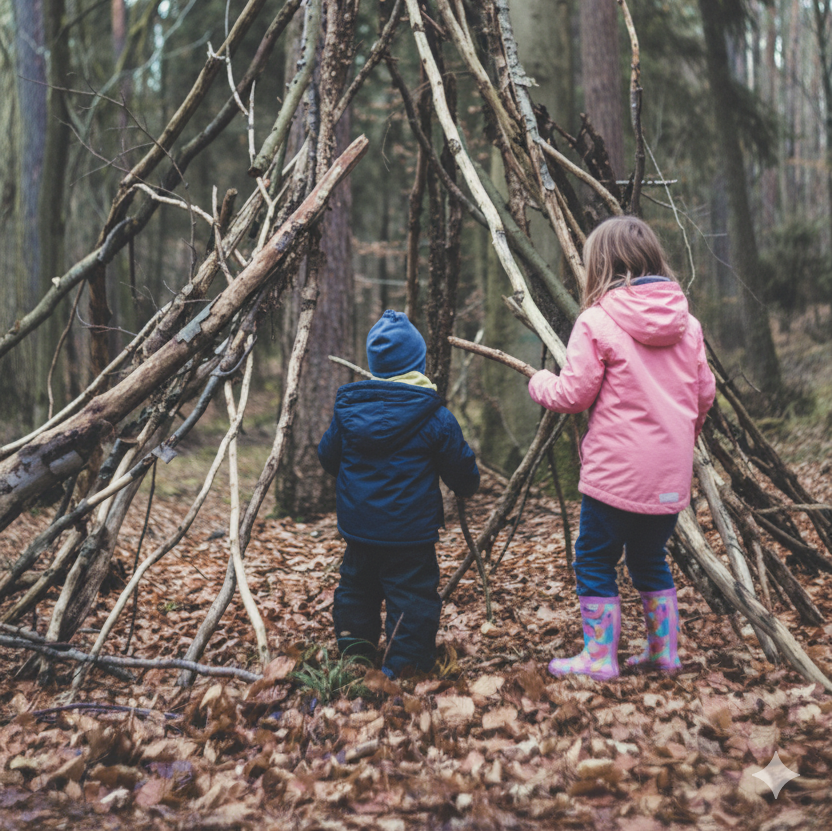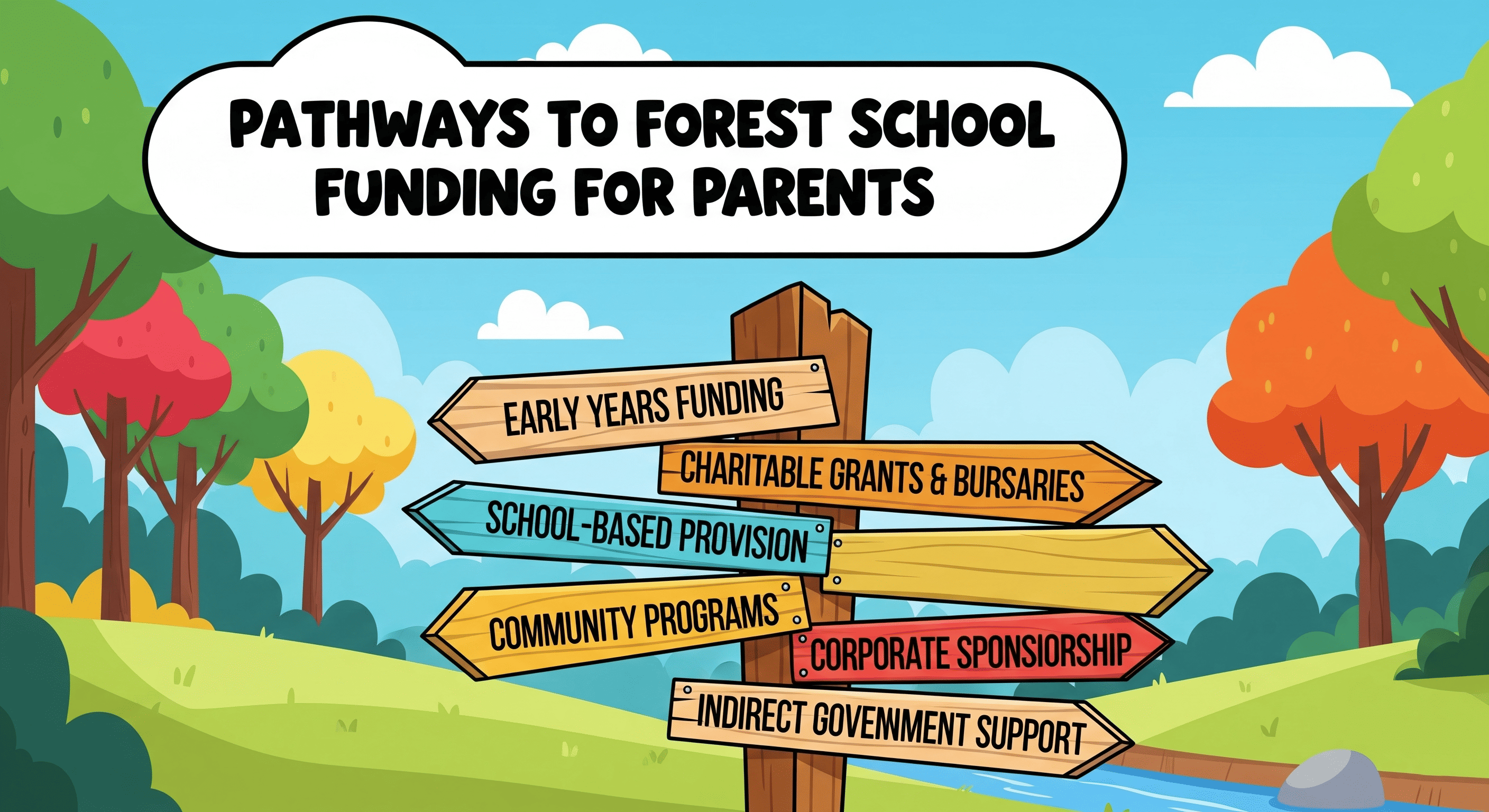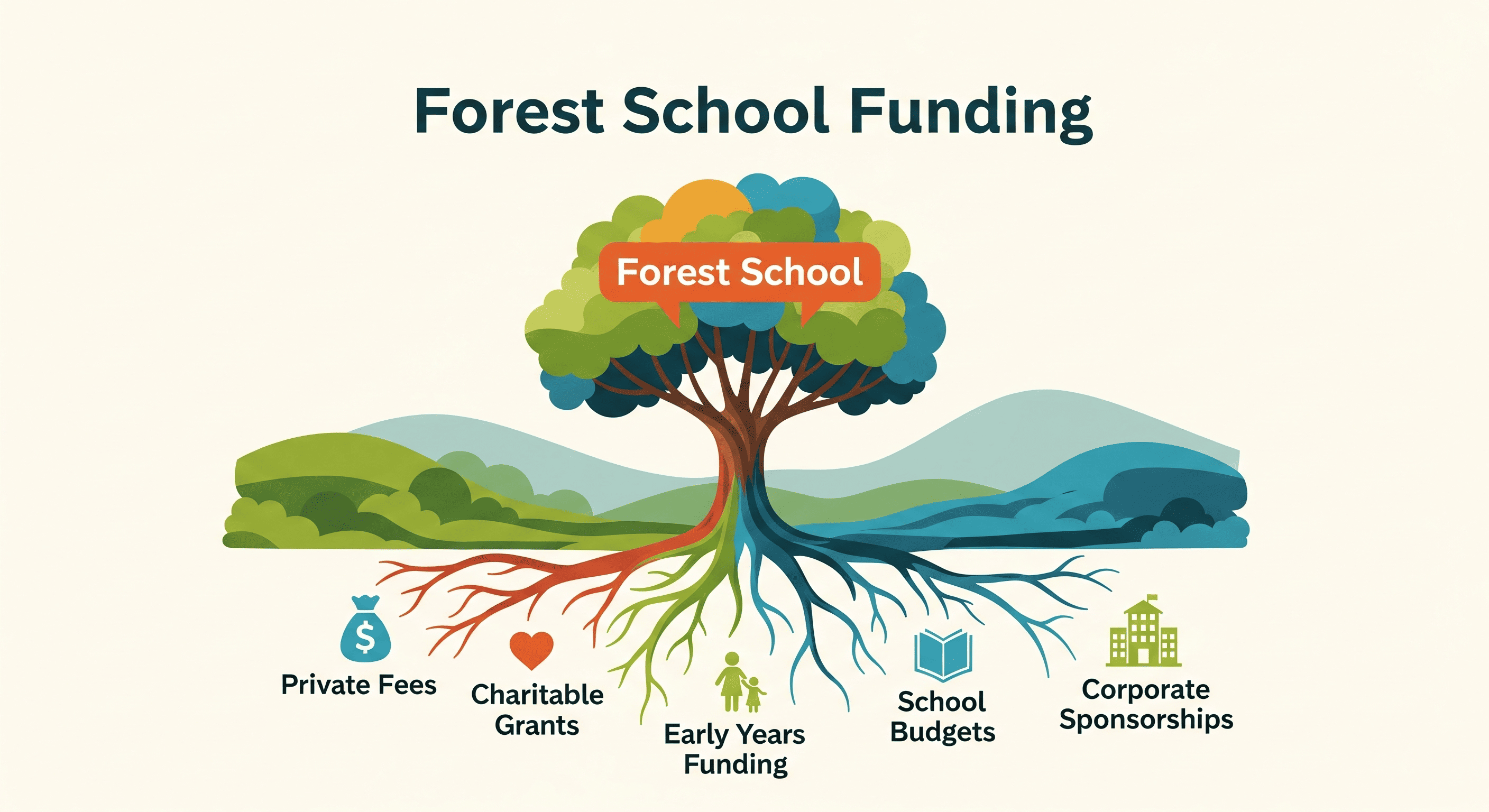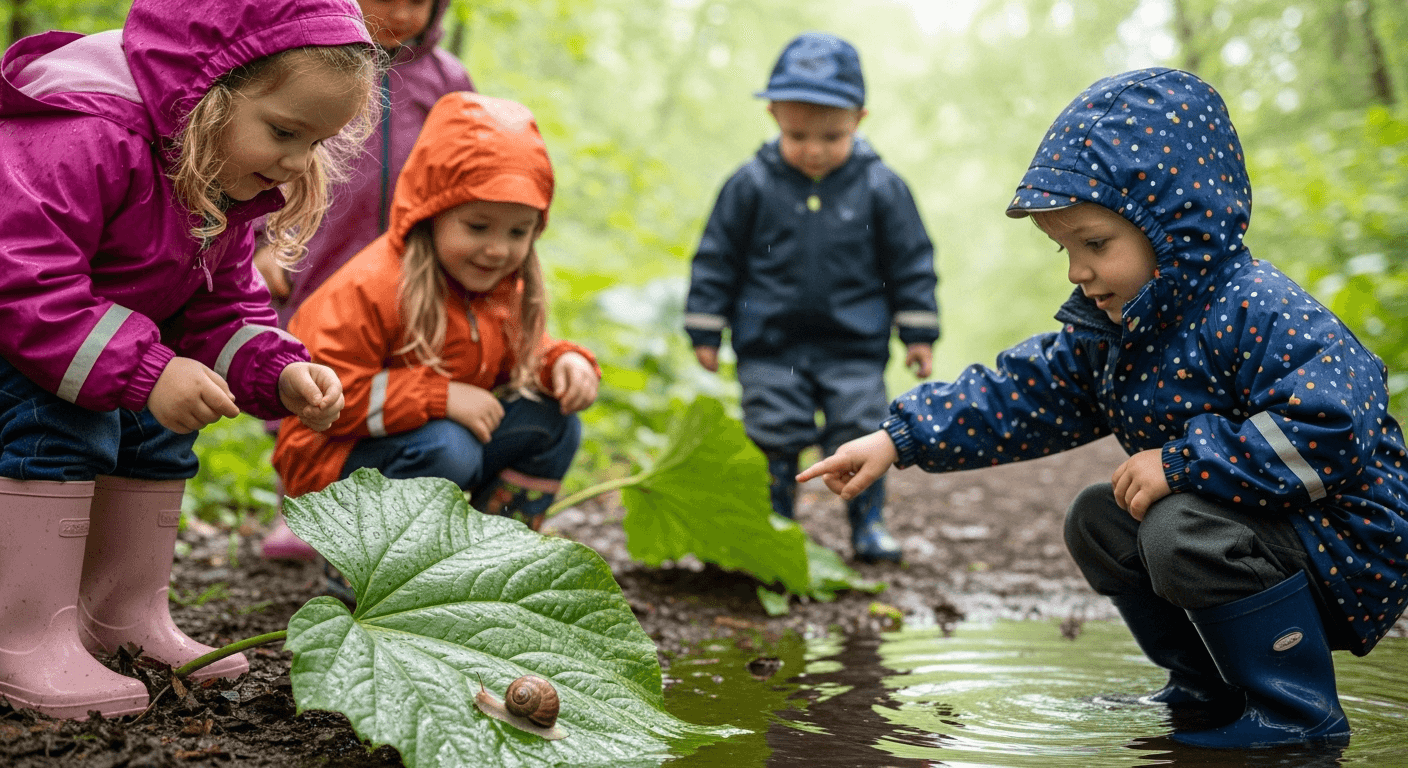· Education · 4 min read
Why September is the Best Time to Start Forest School
September brings natural fresh starts for families. Discover why this timing makes Forest School more successful and how weekly outdoor sessions create lasting development benefits for children.
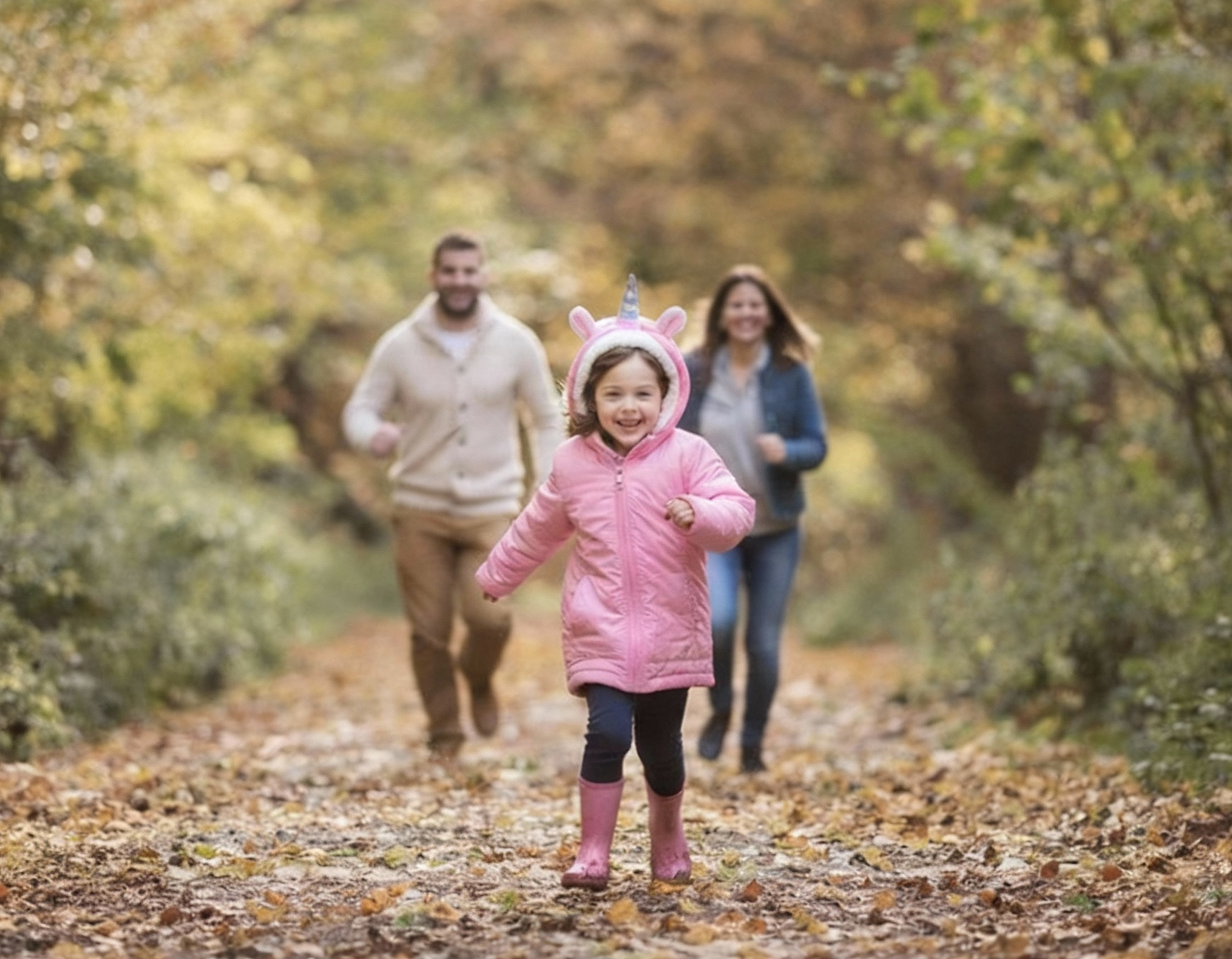
September feels different. Children adjust backpacks, parents plan new routines, and families everywhere sense opportunity. But while most parents focus on traditional education, there’s another powerful option gaining momentum across the UK: Forest School.
Starting Forest School in September isn’t just convenient. It’s strategic. The timing aligns with children’s natural rhythms, creates better habits, and delivers stronger development outcomes throughout the year.
The Psychology of September Fresh Starts
September carries unique psychological power. Children expect change during this month. They’re mentally prepared for new experiences, schedules, and challenges.
Research on fresh start effects by Dr. Katherine Milkman at the University of Pennsylvania found that people are 47% more likely to start positive behaviours after temporal landmarks. September represents the biggest landmark in a child’s year.
Children’s brains are already wired for change during this month. Summer holidays have recharged their energy, making them ready for new challenges rather than feeling overwhelmed by additional commitments.
“My daughter was nervous about trying something completely different,” says Sarah Mitchell, a parent from Leeds. “But because it was September, she treated it like just another part of starting Year 2. By October, Forest School was her favourite day of the week.”
Why Forest School Works Best as a September Start
Starting in September gives children the full academic year to develop abilities. Research by the Forest School Association shows that children attending for a full year demonstrate significantly greater confidence gains than those starting mid-year.
| Starting Month | Programme Completion Rate | Confidence Improvement |
|---|---|---|
| September | 94% | High |
| January | 67% | Moderate |
| April | 52% | Limited |
September offers perfect weather conditions for outdoor learning. Children can explore comfortably without summer heat or winter challenges. They learn to appreciate outdoor time before facing November rain or January frost.
The practical benefits matter too. Parents are already planning after-school commitments, so adding Forest School feels natural rather than disruptive. The school calendar alignment removes logistical barriers for families.
Development Benefits That Build Throughout the Year
Forest School develops skills that traditional classrooms struggle to address. Children learn practical problem-solving by building shelters, starting fires safely, and creating rope swings.
Physical development accelerates outdoors through tree climbing, log balancing, and navigating uneven terrain. These activities build coordination, strength, and spatial awareness. Urban children, who may have limited outdoor access at home, benefit most dramatically.
Social skills flourish naturally. Children learn to negotiate, collaborate, and resolve conflicts without artificial classroom constraints. They develop authentic communication and leadership abilities through group activities and shared challenges.
Risk assessment becomes intuitive. Children learn to evaluate dangers realistically rather than avoid all challenges. They develop what experts call “calibrated risk-taking” - pursuing appropriate challenges while avoiding genuine hazards.
Research from Plymouth Marjon University tracked 200 children through full-year programmes. Results showed remarkable improvements across all development areas.
“The change in my son was incredible,” explains James Turner from Manchester. “He went from being anxious about trying new things to confidently leading group activities.”
Making Forest School Your Family’s New September Tradition
Finding quality programmes requires research. The Forest School Association maintains a directory of qualified practitioners. Look for leaders with Level 3 qualifications and current first aid training.
| Programme Details | Information |
|---|---|
| Session Length | 2-3 hours weekly |
| Cost Range | £15-30 per session |
| Group Size | 8-12 children typically |
| Season Duration | Full academic year |
Children need appropriate clothing but not expensive gear. Our clothing advisor helps parents choose the right waterproof jackets, sturdy boots, and layers for every season. Most programmes provide tools and materials for activities.
Expect gradual progress rather than immediate transformation. Most programmes begin with basic activities like nature crafts and short walks. The first month focuses on building relationships and establishing safety boundaries.
Starting in September allows families to establish routines before winter weather arrives. Children learn to dress appropriately and develop positive associations with outdoor time.
“We started in September 2023, and now my daughter asks to go to ‘her forest’ every weekend,” says Emma Davies from Bristol. “It’s become part of who she is.”
September Sets the Stage for Lasting Change
September offers unique advantages for starting Forest School. Children are psychologically ready for new experiences. Weather conditions support positive first impressions. The full academic year allows skills to develop and compound.
Forest School complements regular education by developing capabilities that classrooms cannot address. Problem-solving, risk assessment, and authentic social skills grow through outdoor experiences. Children who start in September have the longest time to develop these crucial abilities.
The development benefits extend far beyond outdoor skills. Confidence, creativity, and resilience transfer to academic work and social situations. Parents consistently report improvements in homework completion, peer relationships, and willingness to try new challenges.
If you’re considering Forest School for your child, September represents the optimal starting point. The combination of psychological readiness, practical advantages, and full-year development opportunities creates the best conditions for success.
Contact local Forest School practitioners now to secure September places. Many programmes fill quickly as word spreads about their effectiveness. Your child’s outdoor education journey could begin with the next fresh start.
